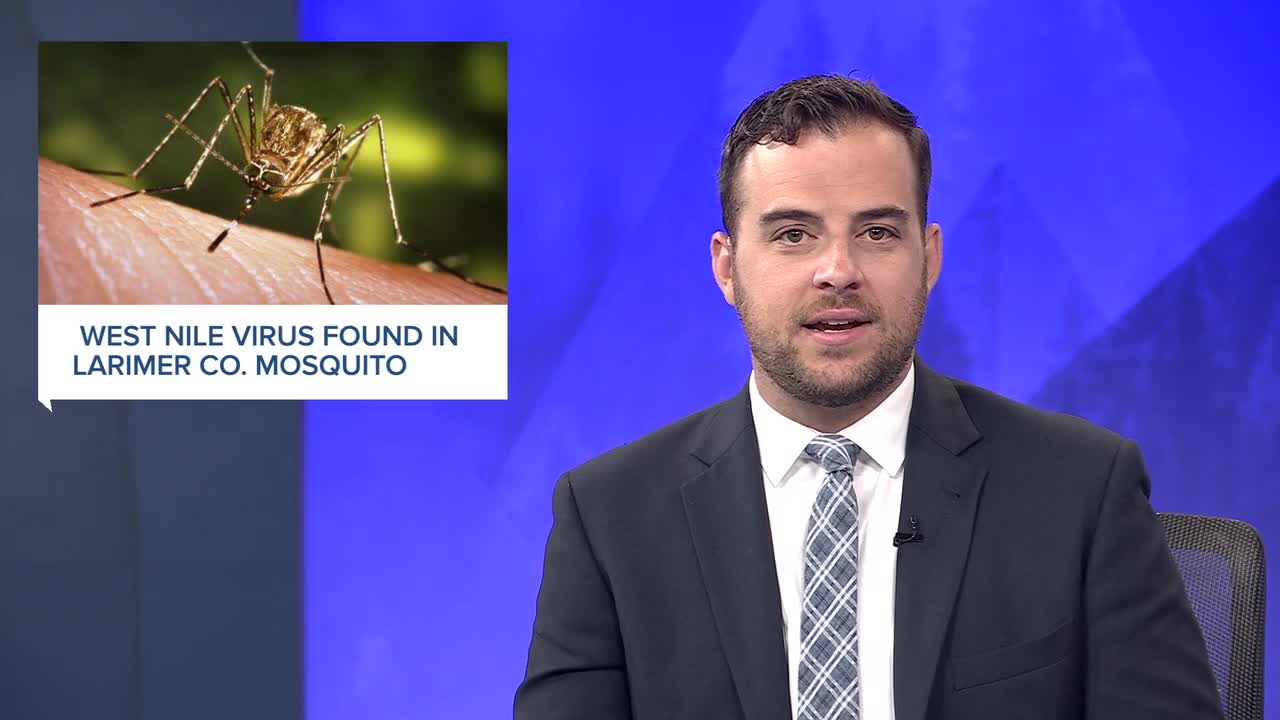ADAMS COUNTY, Colo. – The first two human cases of West Nile Virus (WNV) in Colorado were confirmed Thursday by the Adams County Health Department.
Adams County health officials said the two human cases likely contracted the virus from mosquitoes sometime in late June as routine testing has resumed. In a news release, the county said West Nile virus has not been detected in mosquitoes in Adams County, “neighboring counties have reported positive mosquitoes.”
Denver7 reported earlier this month that health officials detected the virus in mosquitoes in Weld and Boulder Counties. The virus was also found in mosquito samples in Longmont on Tuesday.
“The virus is transmitted through mosquito bites,” said Dr. Kelly Weidenbach, Executive Director of the Adams County Health Department in a news release. “To protect against it, we suggest using effective insect repellents, wearing protective clothing to minimize exposed skin, or opt to stay indoors during peak mosquito activity.”
The West Nile season in the state typically begins around mid-July and peaks about a month later, but state health officials say cases can be identified as early as May and as late as December, with the state’s first freeze usually signaling the end of the season, according to The Colorado Department of Public Health and Environment (CDPHE).In terms of symptoms, most infected people don’t show any signs. Health officials said around 20% of infected people will have flu-like symptoms with less than 1% of people showing more serious symptoms.

Health News
West Nile Virus detected in Weld, Boulder mosquitoes as season starts early
Denver7 digital journalist Óscar Contreras compiled the following tips on how to protect yourself and your family from West Nile virus
Mosquitoes are most active at dusk and dawn, so the first line of defense against potential exposure is to avoid activities during this time, according to health experts.
As mosquito season continues, health officials recommend taking the following steps to protect yourself and your family from West Nile virus:
- Stop mosquitoes from laying eggs in or near water on your property by:
- Eliminating sources of standing water near your home by emptying, scrubbing, turning over, covering or throwing out items that hold water such as tires, buckets, planters, toys, wheelbarrows, pools, birdbaths, flowerpots, or trash containers once a week. All of these can become a breeding ground for the mosquitoes that carry West Nile virus
- Check for water-holding containers both indoors and outdoors
- Avoid watering cement or on the street, as these can result in pools that support larval mosquitoes
- If making landscape decisions, consider ways to minimize overspray (of irrigation) to streets and gutters
- Wear long pants, long-sleeved shirts, and socks in areas where mosquitoes are active
- Use an insect repellent containing DEET, picaridin, oil of lemon eucalyptus, or para-menthane-diol. The EPA has a database where you can search for and find a repellent that is right for you.
In addition to eliminating sources of standing water around your home weekly, you can also mosquito-proof your home by installing or repairing screens on windows and doors, health officials said.





Denver7 is committed to making a difference in our community by standing up for what's right, listening, lending a helping hand and following through on promises. See that work in action, in the videos above.





